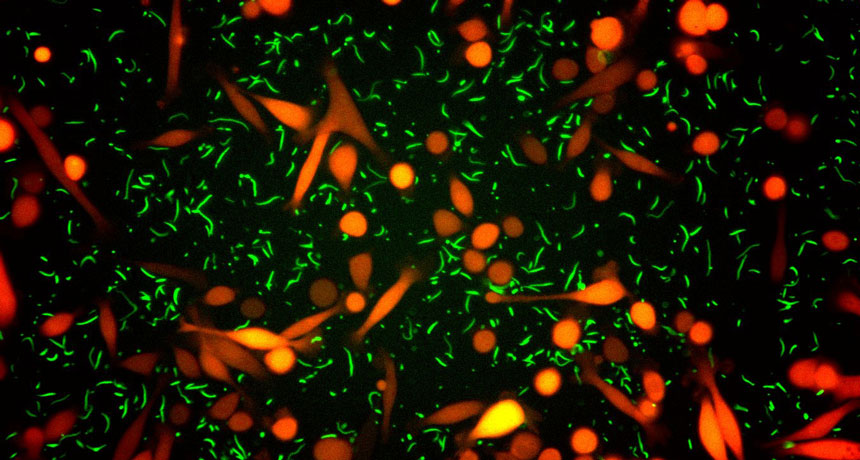Microbes hobble a widely used chemo drug

Some bacteria may shield tumor cells against a common chemotherapy drug.
Certain types of bacteria make an enzyme that inactivates the drug gemcitabine, researchers report in the Sept. 15 Science. Gemcitabine is used to treat patients with pancreatic, lung, breast and bladder cancers.
Bacteria that produce the enzyme cytidine deaminase converted the drug to an inactive form. That allowed tumor cells to survive gemcitabine treatment in lab dishes and mouse studies, Leore Geller of the Weizmann Institute of Science in Rehovot, Israel, and colleagues discovered. More than 98 percent of the enzyme-producing microbes belong to the Gammaproteobacteria class, which includes E. coli and about 250 bacterial genera.
Pancreatic tumors taken from human patients also carried the enzyme-producing bacteria. Of 113 pancreatic ductal adenocarcinoma samples studied, 86 contained gemcitabine-inactivating bacteria.
Antibiotics may correct the problem. In the study, Geller and colleagues infected mice that had colon cancer with the enzyme-producing bacteria. Tumors grew rapidly in infected mice treated with gemcitabine alone. Giving the mice antibiotics helped gemcitabine kill tumor cells, increasing the number of tumor cells going through a type of cell death called apoptosis from about 15 percent to 60 percent or more. That result may indicate that combinations of gemcitabine and antibiotics could make chemotherapy more effective for some cancer patients.